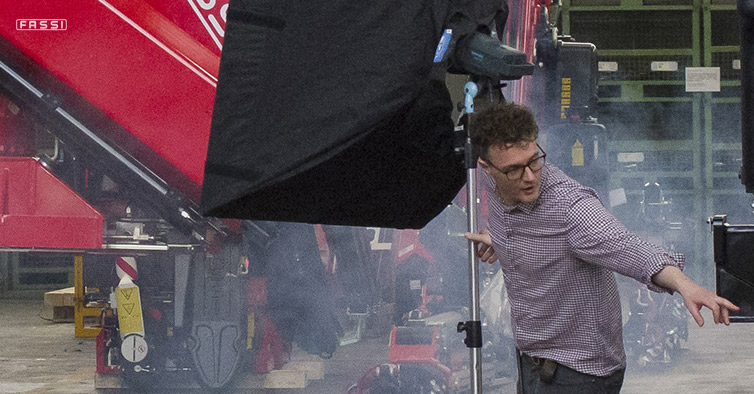Interview with LBSU BA(Hons) Photography course director, Daniel Alexander
Daniel Alexander is a London based photographer and educator. He has taught in a number of universities in the UK and is currently course director of the BA(Hons) Photography course at London South Bank University. Along with his students, Daniel set up the South Bank Collective CIC and is involved in the creative direction of the company.
Could you tell us a little about the work of LBSU and the South Bank Collective?
I am fairly new to LSBU, starting three and a half years ago. When I started as course director I rewrote and relaunched the BA(Hons) Photography course, with a curriculum focused on developing creative, innovative and industry focused practitioners. A large part of the course’s identity is the focus on professional practice, and students getting their work out into the world, through exhibitions, publications and collaborations. The students and I set up a Community Interest Company, called the South Bank Collective which is run by the students as a professional creative agency, undertaking paid work for a range of clients. Leigh (Carter, MD of Fassi UK Ltd) approached me with the FASSI project just as the South Bank Collective was becoming established and it was our first big collaboration with a client. The fact that it was an international company made it a very exciting thing to work on.
Can you tell us a little about the creative process and what is was like to shoot on location in the Fassi workshop?
The whole process took around 6 months. We decided that the South Bank Collective would produce the project, and we would open it up to students from across all three years of the degree course. Trix Carver was the student lead on this project, and she asked students who wanted to work on the project to submit their initial ideas for how to approach the brief. Through this process, we managed to identify 9 students who were keen to work on the project and who had good ideas for how to approach the brief. I then met with this group regularly over a period of a couple of months as they developed their ideas, and did test shoots to help identify how best to photograph them. The creative process was very focused on developing a collective approach to the brief, so that the final images could be seen as a coherent set, as well as stand-alone pictures. This meant that the students all helped each other on the development of the ideas, and then when we were shooting the images the group worked as a team to produce each image.
The shoot in Italy was a brilliant experience, everyone we worked with at Fassi, from Leigh Carter and Silvio Chiapusso to the factory managers, the factory workers, and the interpreter were fantastically helpful and enthusiastic about helping us to create the images. We shot from 9 in the morning until 2 the following morning each day, so the experience was intense, but very rewarding as we were able to see the initial shots coming out. Working in this way is a great learning experience for the students, who experienced the pressure of a big production shoot and learnt a lot in a short period of time. The trip was also a great cultural experience, as the shoots were interspersed with trips to some really amazing restaurants where we got to eat very, very well.
For you, what is the theme that ties all the final images together?
Leigh Carter has expressed this perfectly, in saying that: "The overall concept was to photograph the cranes on location, to celebrate the scale of the factory spaces, their precision engineering and the aesthetic beauty of the cranes." The use of lighting to transform these spaces is what visually ties the images together, and a number of them have links to Britain in the images, from the projections, to the skyline produced as a light painting.


